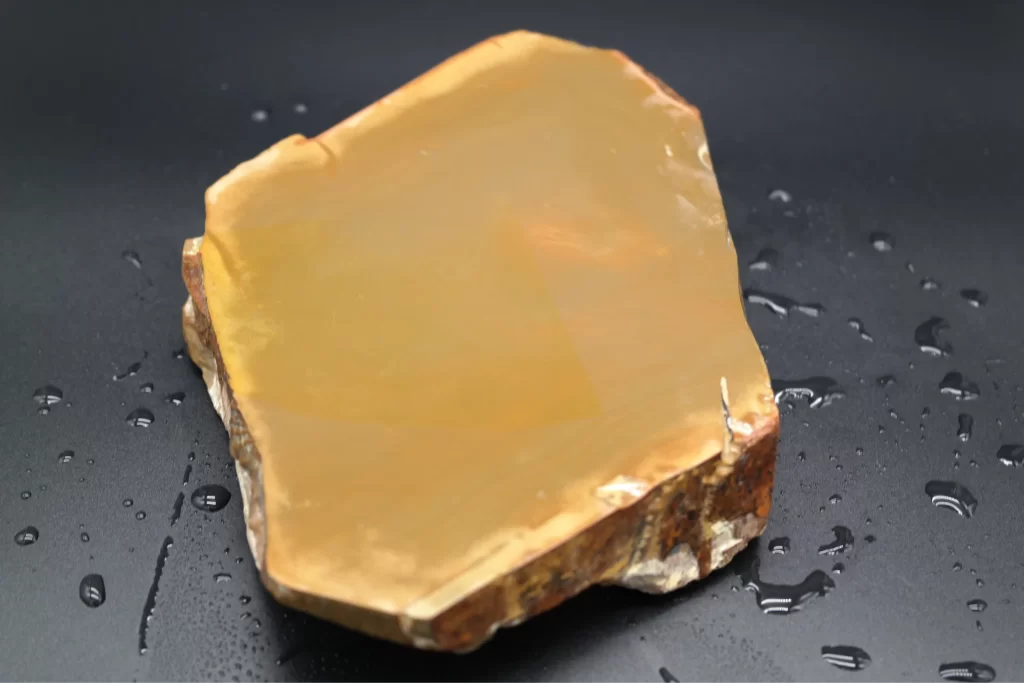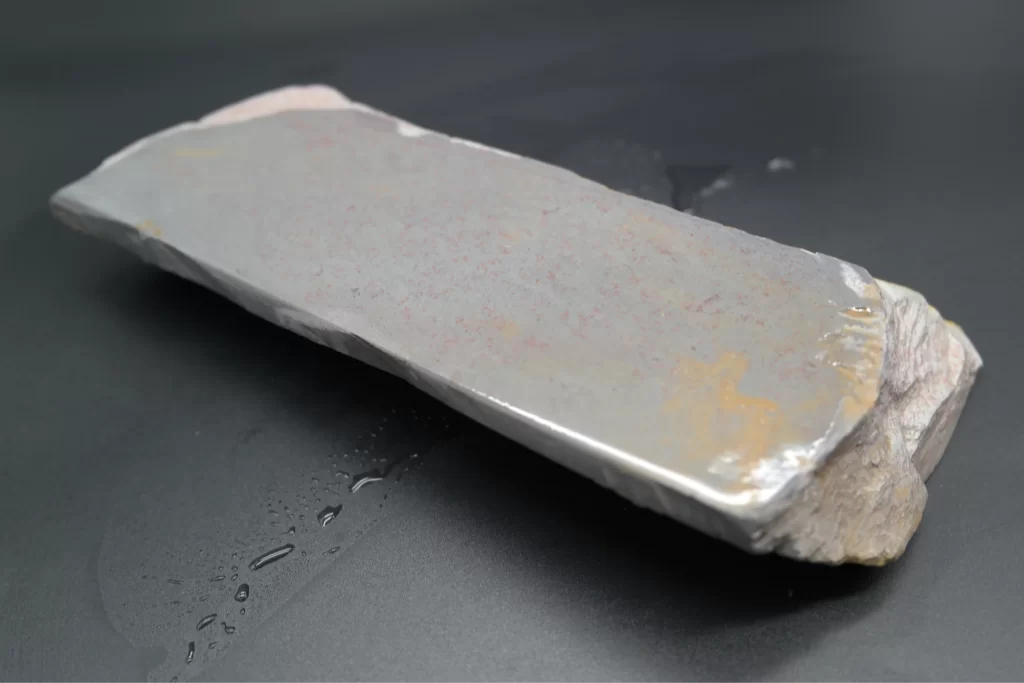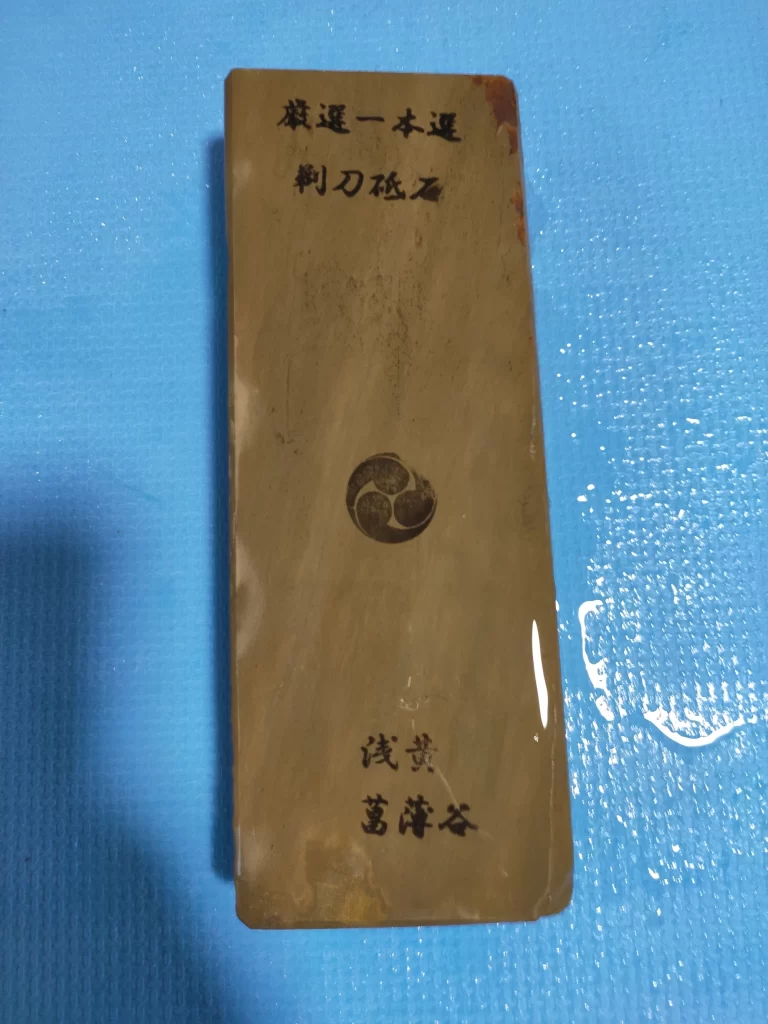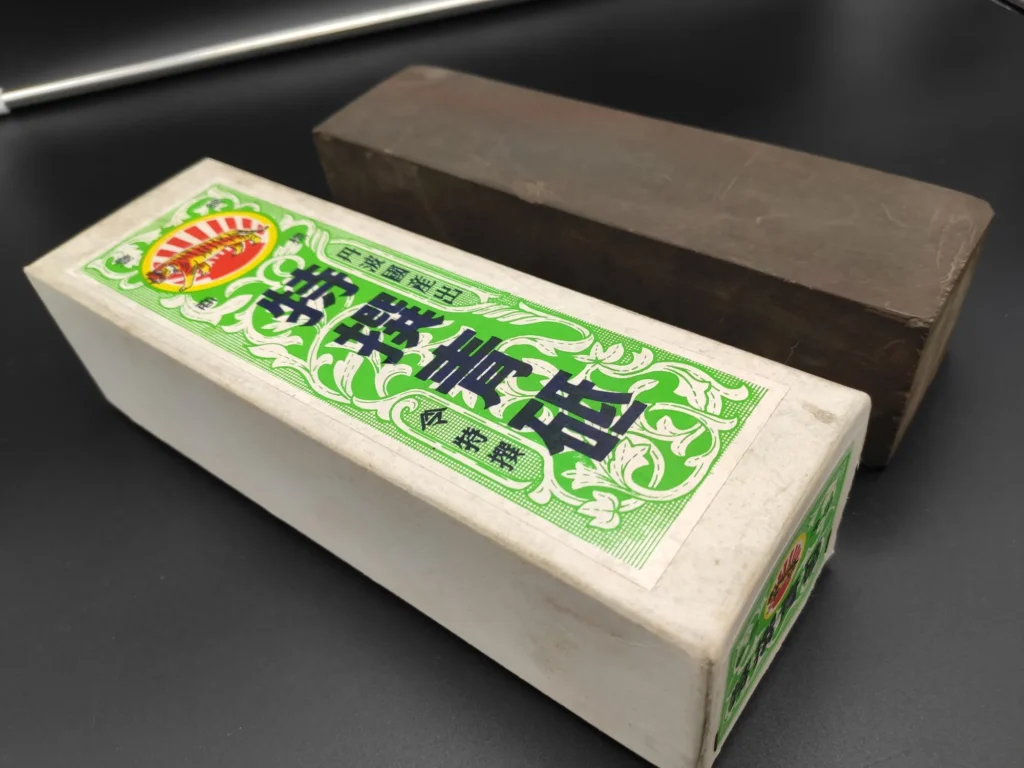Natural Japanese sharpening stones, known as tennen toishi, are highly valued by chefs, woodworkers and knife enthusiasts for their unique sharpening properties. Quarried from historic Japanese quarries, these stones offer a unique tactile, organic sharpening experience that often cannot be replicated by synthetic stones. Their ability to create extremely sharp and long-lasting blades with a refined, polished finish makes them a favourite for high-end knives, such as Japanese chef's knives or razors. In addition, they remove little metal through delicate handling, thus extending the life of the knife. They are also a pleasure to work with because the metal waste is absorbed into the slurry that is released and does not pollute the environment, tools or hands. This article discusses the best natural Japanese sharpening stones, their properties and what makes them stand out.
Why choose natural Japanese sharpening stones?
Unlike synthetic sharpening stones, which have a uniform grain size and composition, natural stones vary in hardness, grain size and mineral composition, offering a unique sharpening experience. They are mostly quarried from regions such as Kyoto, Narutaka or Ohira, with each quarry producing stones with distinctive characteristics. Natural stones are valued for:
- Excellent polishing: They create a mirror finish, ideal for high carbon steel knives.
- Unique sensation: The sensation of sharpening on natural stones is often described as smoother and more enjoyable.
- Durability: Natural stones last a lifetime when properly maintained.
However, they require more skill to use, are often expensive and may require smoothing with silicon carbide, a diamond plate or other stone. Here are some of the best natural Japanese sharpening stones, selected for their quality, reputation and performance.
The best natural Japanese sharpening stones

1. Nakayama stones
- Careers: Nakayama, Kyoto
- Graininess: Small (equivalent of 8 000-12 000+)
- Tinka: High-end polishing of Japanese knives and razors
- Why delightful: Nakayama stones are legendary for their fine, uniform grain and their ability to create a flawless edge. They are particularly prized for their honyama (basic hill) grades, which are soft, fast-grinding and ideal for final polishing. Rich, earthy colours and a smooth sharpening feel make them a professional choice.
- Price range: 200-1 000+ USD (depending on size and quality)

2. Ohira Uchigumori
- Careers: Ohira, Kyoto
- Graininess: Extremely small (equivalent of 3 000-6 000)
- Tinka: Final cosmetic polishing of razors and high-end knives, i.e. kasumi finish.
- How goodA: Uchigumori stones are renowned for their ability to create a hazy, semi-mirrored surface, especially for traditional Japanese knives. Their softness and fine grain size make them an excellent choice for the final sharpening stage, improving edge retention and aesthetics. These stones are rare and highly desirable.
- Price range: 300-2 000+ USD

3. Shoubudani Asagi
- Careers: Shoubudani, Kyoto
- Graininess: Medium to small (equivalent of 6 000-10 000)
- Tinka: For intermediate sharpening and preparation for polishing as well as finishing
- Why delightful: Shoubudani Asagi stones offer balanced speed and sophistication. Their medium hardness and uniform texture make them versatile for both knives and tools. They are known for their bright, clean edge and excellent feel when sharpening.
- Price range: 150-600 USD

4. Aoto stones
- Careers: Miscellaneous (often Kyoto or surrounding areas)
- Graininess: Medium (2 000-4 000 equivalent)
- Tinka: Intermediate sharpening of knives and woodworking tools
- Why great: Aoto stones are softer and often coarser than Nakayama or Uchigumori stones, making them ideal for removing scratches from coarser-grained stones and preparing blades for finer polishing. They are forgiving for beginners and give a creamy sharpening sensation.
- Price range: 100-400 USD

5. Ozuku Asagi
- Careers: Ozuku, Kyoto
- Graininess: Small (equivalent of 8 000-12 000)
- Tinka: Polishing and finishing of blades
- Why great: Ozuku Asagi stones are valued for their hardness and fine, uniform grain. They produce a sharp, polished edge with a slightly different feel to Nakayama stones, often described as a crisp and precise result. They are favoured by collectors and professionals alike.
- Price range: 200-800 USD
How to choose the right natural sharpening stone
Choosing the right natural Japanese sharpening stone depends on your sharpening needs and level of experience:
- Graininess: Choose the stone according to the sharpening stage. Medium-grained stones (1 000-5 000) such as Aoto, Aizu, etc. are suitable for initial sharpening, while fine or ultra-fine stones (8 000-15 000) such as Nakayama or Shobudani are suitable for polishing.
- Hardness: Softer stones (e.g. Uchigumori) cut faster but wear out faster, while harder stones (e.g. Ozuku) last longer but require more skill.
- Knife type: High-carbon steel knives, such as Japanese knives, work best with fine natural stones for optimum sharpness and durability.
- Budget: Natural stones are expensive because of their rarity. Beginners are advised to start with a mid-priced option such as Shoubudani Asagi.
- Source:: Buy from reputable sellers to ensure authenticity. Even better if you have access to a video of the work.
Tips for using natural Japanese sharpening stones
- Proper soakingA: Most natural stones do not need to be soaked before use and are only suitable for use after sprinkling with water.
- Regular ironing: Use a diamond plate or smoothing stone to keep the surface flat, as uneven stones can damage the edge or prevent you from achieving a good sharpness.
- Improve your technique: Natural stones require constant pressure and angle control. Practise with cheaper knives before moving on to expensive ones.
- Seal the stone: Some stones benefit from sealing the sides with varnish to prevent cracks or water ingress.
- Store safely: Keep the stones dry and in a protective case to avoid damage.
Conclusion
Natural Japanese sharpening stones such as Nakayama, Ohira Uchigumori, Shoubudani Asagi, Aoto and Ozuku Asagi represent the pinnacle of sharpening excellence. Their unique characteristics and rich history make them a worthy investment for those who are serious about the care of extremely sharp knives. Although they require more skill and care than synthetic stones, the results - beautifully polished, long-lasting blades - are unrivalled. Choose a stone that suits your skill level and sharpening goals, and you'll understand why these stones are respected the world over.
Happy sharpening!

